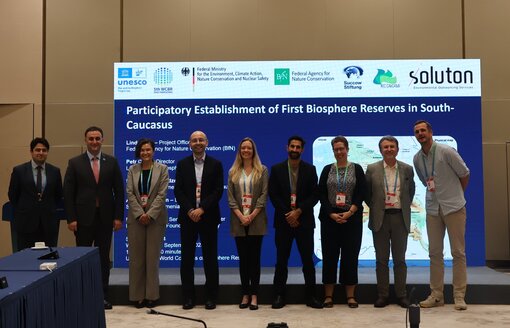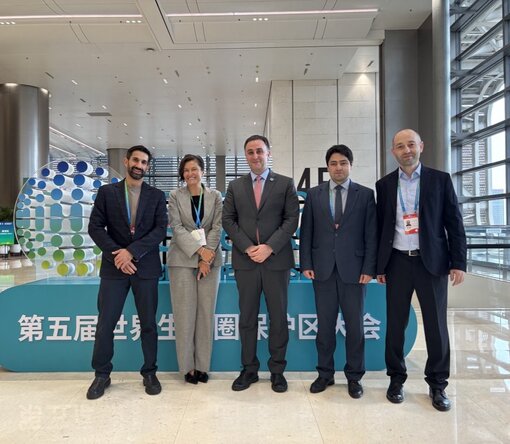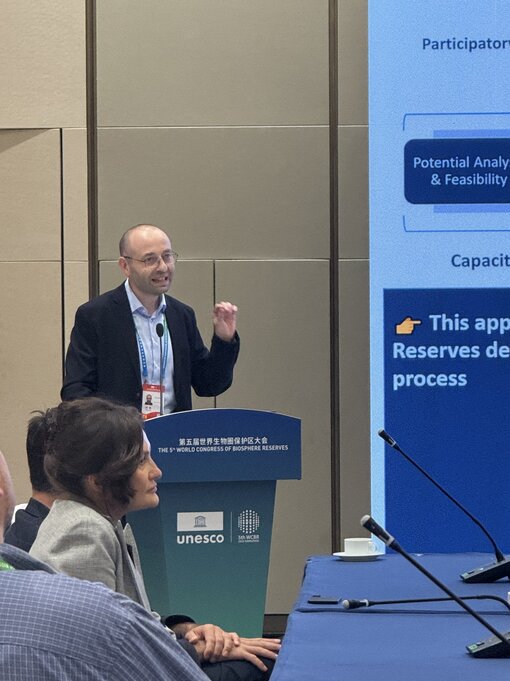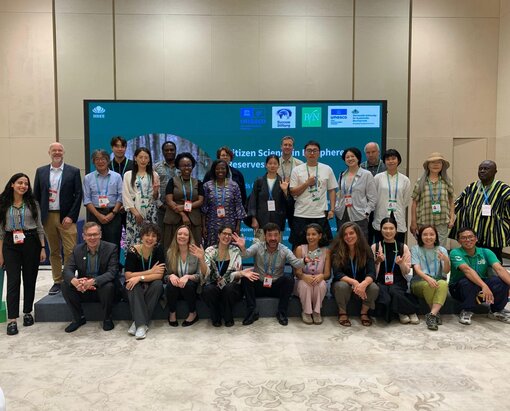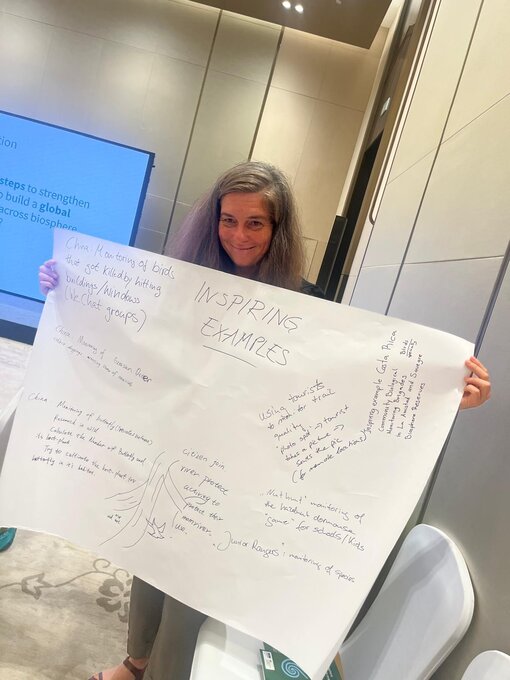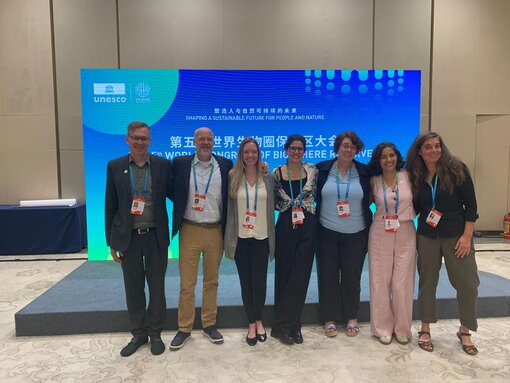Two side events organized and co-organized
As part of the Congress, the Foundation organized or co-organized two side events:
- “Participatory Establishment of the First Biosphere Reserves in the Caucasus” – presenting a tested three-phase approach for countries new to BR designations, with examples from Georgia and Armenia.
- “Citizen Science in Biosphere Reserves: Towards Open Science for Conservation and Education for Sustainable Development (ESD)” – co-organized with the Biosphere Reserves Institute, UNESCO, and the German Federal Agency for Nature Conservation (BfN).
>> Side Event: Participatory Establishment of the First Biosphere Reserves in the Caucasus
Participatory methodology proves successful
At the Caucasus session, the Foundation and its partners presented their participatory methodology for BR development, highlighting successful designations in Georgia and the ongoing Dilijan BR establishment process in Armenia. The approach has proven effective in the Caucasus and provides a replicable model for other regions seeking to establish biosphere reserves and community-led conservation planning. The participation of Aram Meymaryan, Deputy Minister of Environment of Armenia, emphasized the strong political commitment behind Armenia’s first BR nomination.
International support
The BR development processes in Georgia and Armenia are supported by the German Federal Ministry for the Environment (BMUV) and partner organisations including BfN, UBA, GIZ, RECC, Soluton, and the Ministries of Environment of Armenia and Georgia.
>> Side Event: Citizen Science in Biosphere Reserves: Towards Open Science for Conservation and Education for Sustainable Development (ESD)
Global Experiences in Citizen Science
The Side Event featured a rich collection of experiences in Citizen Science from around the world: the use of citizen science in water management and protection in South African Biosphere Reserves was presented by Mbali Mashele, demonstrating a wealth of methods, technical solutions and lessons learnt. Tania Moreno from University for International Cooperation in Costa Rica presented examples of citizen science from Latin America, where it is widely applied, building on a long tradition of action research and cooperation with indigenous peoples and local communities. Kirsten Meuer presented the role of Citizen Science in the Succow Foundation with examples from Myanmar, Central Asia and the Caucasus. Barbara Engels from BfN presented on pathways to future citizen science.
Interactive Exchange and Future Perspectives
This was followed by an interactive session in world café format, where participants from around the world exchanged inspiring examples of citizen science and next steps needed to build a global community of practice in Citizen Science.
Photos: A. Karapetyan, S. Akhobadze, H. Vollmann, N. Malazonia / Michael Succow Stiftung, A. F. Feireira, A. H. Salinas
![[Translate to EN:] Banner Stiftung](/fileadmin/_processed_/b/c/csm_banner-stiftung_fee6c1c492.jpg)
